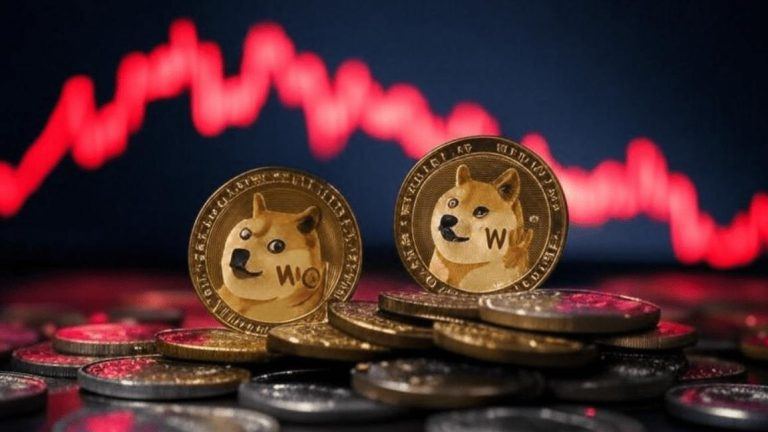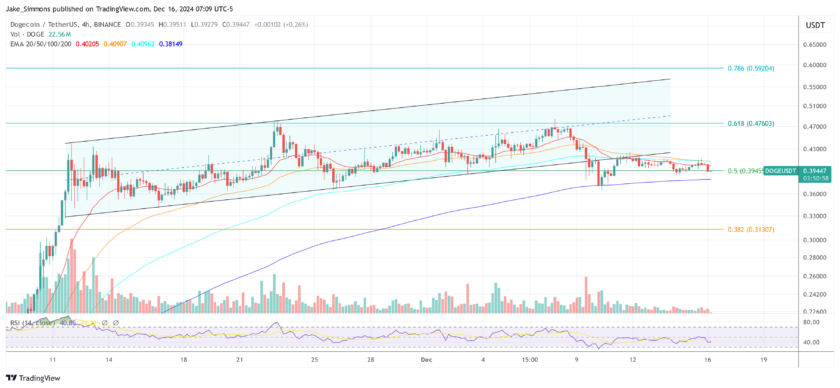North Korea’s regime is using cryptocurrency scams and fake digital coin offerings to raise money for the government, new research on North Korea’s internet use reveals.
One example is a company called Marine Chain, which launched in 2018 to allegedly offer partial ownership of maritime vessels in exchange for digital tokens. It is unclear exactly how much revenue the company raised, and six months later its website had been taken offline. But cybersecurity researchers from Recorded Future, who on Thursday released a report title Shifting Patterns in Internet Use Reveal Adaptable and Innovative North Korean Ruling Elite, discovered that the company’s CEO, a man named Captain Jonathan Foong Kah Keon, was a Singaporean national who has allegedly been working to help North Korea evade international sanctions for years.
Foong succeeded in giving the company a veneer of legitimacy by appearing at investor conferences and promoting himself as the coin’s human face, analysts say. In March, for example, he appeared at a conference in Shanghai on blockchain technology and “digitalizing the supply chain.” Foong was listed as the CEO of Marine Chain and likely used the speaking tour to attract investors to the company. He also spoke at a forum on supply chain and logistics innovation in Hong Kong that month.
“It demonstrates the overlap between physical support networks with the virtual support networks,” Priscilla Moriuchi, director of strategic threat development at Recorded Future told. “Captain Foong is part a network of North Korea supporters in Singapore. The broad consensus is that the support is financially driven. They’re unscrupulous business people who are willing to engage a wide variety of illicit partners.”
Foong’s current LinkedIn profile does not include a reference to Marine Chain, but claims that he has over two decades of experience as a ship’s captain and over 10 years of experience working for SingClass International, which provides classification services to “various ship owner administrations.” News articles from 2003 mention Foong as the deputy director of the Mongolian shipping registry.
For the last several years, North Korea has been using a variety of scams and cyber attacks to raise money for the Kim regime. In 2016, for example, North Korean hackers were accused of stealing at least $81 million for a bank in Bangladesh. The North Korean hacking group Lazarus Group was blamed for that and a ransomware attack called WannaCry that infiltrated institutions across Europe. The regime also mined cryptocurrency on some of the stolen computers. But experts say it’s the low-level cybercrime, including writing scripts for online poker games, that is most prevalent.
The companies Foong has worked with “have been linked to manipulating the national flag registries for three countries, which were frequently used as flags of convenience for North Korean vessels,” according to the report by Recorded Future. The report’s authors said that Marine Chain was a “blockchain scam that we assess with high confidence was conducted on behalf of North Korea.”
The business information platform Crunchbase, meanwhile, describes Marine Chain as “a next-generation global maritime investment marketplace; enabled by blockchain technology.” The company allegedly had between 11 to 50 employees and had gone through one round of funding. Today, however, only one employee, a Korean national, is listed on the company’s LinkedIn page.
Researchers also previously linked Marine Chain to a man named Tony Walker, who claimed to be a “maritime industry blockchain specialist,” and a man named Hyo Myong Choi, who claimed to be a cryptocurrency investor in Korea. Both men have a limited online presence, and cryptocurrency enthusiasts have expressed doubt about whether the men exist outside of the Marine Chain scam.
“Not sure if anybody else is looking at Marine Chain. Seems to be founded by a guy called Tony Walker from Singapore but I can’t find much on him online. Anyone seen any of his previous projects?” asked one user on the online platform Reddit.
“Havent come across Tony Walker and his LinkedIn profile doesn’t have a photo. I heard most of the Marine Chain team quit in January because if legal issues. Never a good sign. Did you pick that up?” responded another user.
Experts note that the scams are rarely prosecuted because it’s difficult to distinguish a failed cryptocurrency company from a fraudulent one.
“Fifty to 60 percent of initial coin operations fail. So investors know the risks and they invested,” Moriuchi told Newsweek. “They need to regulate the cryptocurrency more broadly. Regulation at some point is needed because it’s risky for regular people. But now it’s hard to hold these types of enablers accountable.”
In general, researchers discovered that the North Korean regime and its backers are switching from using western social media platforms like Facebook and Instagram to Chinese platforms, with the exception of LinkedIn, which remains popular.
The LinkedIn page for Marine Chain still exists and claims that the company’s address is in Wanchai, Hong Kong.




